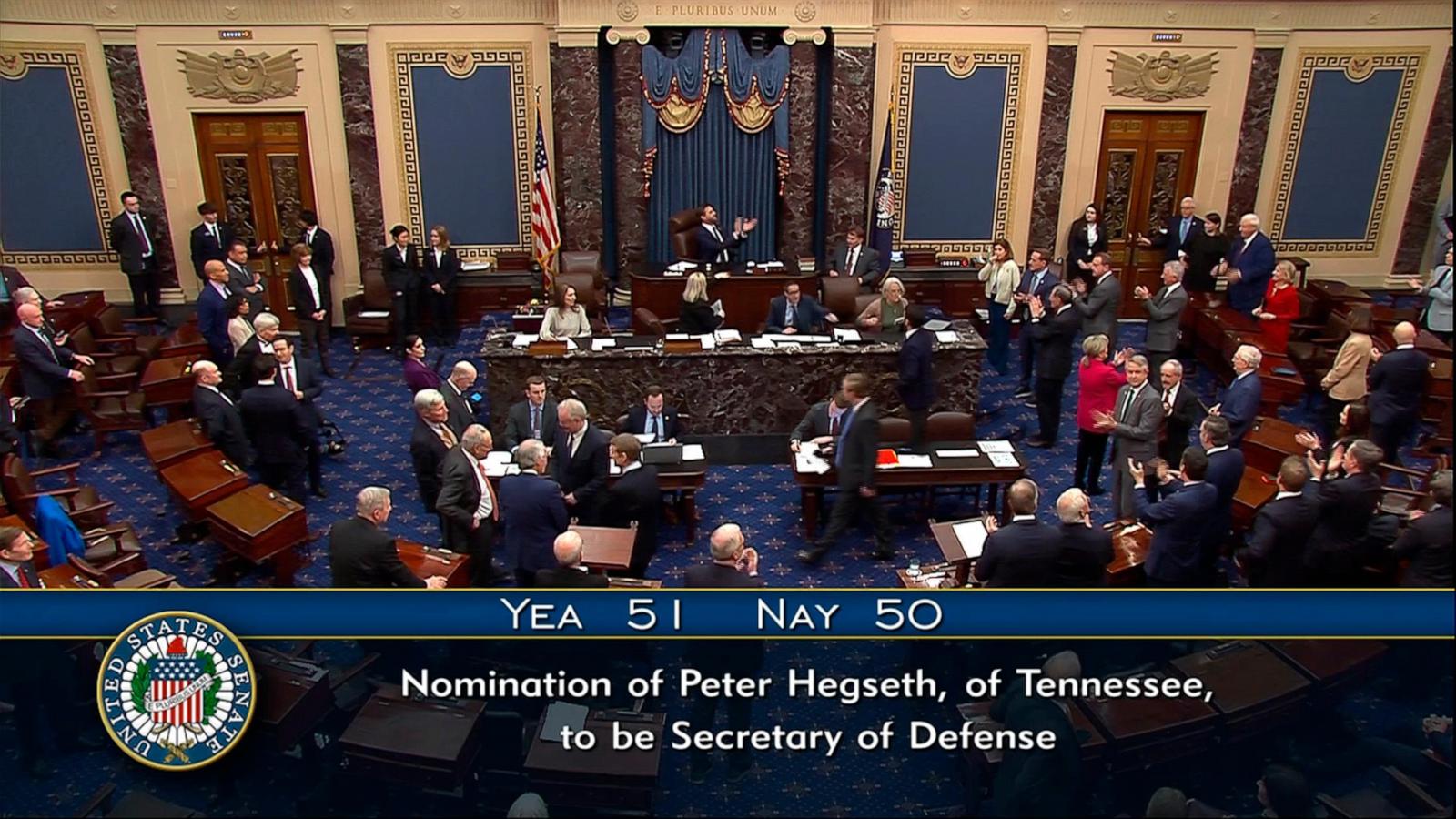Pete Hegseth Confirmed as Defense Secretary Despite Controversy: A Deep Dive into the Senate Confirmation Battle
The Senate's late-night confirmation of Pete Hegseth as the nation's defense secretary has sent shockwaves through Washington. This controversial appointment, secured by a razor-thin margin and marked by intense political maneuvering, has sparked a national conversation about qualifications, accountability, and the growing influence of culture wars on high-level government appointments. Prepare to be stunned by the details of this incredible political battle!
The Hegseth Confirmation: A Controversial Vote
Hegseth's nomination faced unprecedented scrutiny. Allegations of heavy drinking, aggressive behavior toward women, and questionable statements on women's roles in combat raised serious concerns about his fitness for the job. The fact that the Vice President had to cast a tie-breaking vote underscores just how contentious this confirmation process truly was. This controversial nomination process provides insight into the clash between traditional military values and increasingly divisive social issues.
A Divided Senate
Republicans largely rallied behind Hegseth, emphasizing his military service and a stated desire to return a "warrior culture" to the Pentagon, a phrase itself sparking debate and interpretations. Democrats, however, fiercely opposed the nomination, citing Hegseth's lack of experience and the numerous credible allegations of misconduct. Senator Jack Reed powerfully summarized the concerns of many, poignantly questioning if Hegseth was truly the "best we have to offer."
A Political Power Play?
Beyond the individual qualifications debate, Hegseth's confirmation became a proxy battle for political power. The Senate vote reveals the significant influence wielded by President Trump, successfully steering the Republican majority to secure his preferred candidate for this critical national security position. It indicates Trump's adeptness at exploiting cultural divisions in pursuit of his agenda and suggests his ongoing effectiveness in influencing and directing the GOP in Congress. Hegseth's confirmation itself serves as a testament to his political prowess, even against considerable opposition.
The Allegations and Their Impact
Hegseth's confirmation was overshadowed by numerous allegations, from a $50,000 payout after an incident with a woman at a political event to allegations of abuse during his marriage, some alleging incidents of both domestic and workplace violence. While he denied these claims, the sheer number of allegations and the financial settlement served as potent arguments deployed against his confirmation. Many questioned how such actions, whether deemed legally problematic or morally reprehensible, were reconciled with the integrity needed to lead the Pentagon. The Senate’s vote also highlights a more complex question: what are the standards that must be met before candidates receive confirmations to this level of leadership within the executive branch.
The Role of the Culture Wars
The Hegseth confirmation exemplifies the growing role of culture wars in national politics. His supporters championed his stated goal of removing “woke distractions,” while detractors voiced serious concerns about his extreme statements and actions. The debate about diversity, equity, and inclusion within the military underscored underlying societal tensions and their potential effects on our country’s ability to function well in governance. These discussions reflect on issues which have impacted public support, media framing, and Senate dynamics influencing the outcome.
Beyond Hegseth: A Look at Trump's Other Controversial Nominations
Hegseth’s nomination wasn't an isolated case; Trump's other controversial cabinet nominees further underline a particular approach and prioritization by his administration. Potential appointments include Trump allies with questionable track records – from publishing enemies’ lists to anti-vaccine advocacy. These nominees are controversial selections in themselves and could invite more challenges and political wrangling moving forward. Such challenges may present implications for Senate relationships, Trump’s administrative actions, and national policy planning for the country's future.
Implications of Recess Appointments
Trump's suggestion of bypassing Senate confirmation via recess appointments heightened tensions during the process. The possibility of using these less-formal and potentially disruptive appointments underscores political uncertainty and may set a significant and controversial precedent impacting how administrations consider selecting high-profile appointments for their cabinets. Such precedent may change or further complicate already charged discussions about executive appointments in future terms and congresses.
Take Away Points
- Pete Hegseth’s confirmation highlights the intense political polarization in the United States.
- The allegations against Hegseth raise questions about the standards for high-level government appointments.
- The confirmation process reflects the increasing impact of culture wars on national policy.
- Trump's alternative consideration of recess appointments could potentially undermine the traditional Senate confirmation process.









